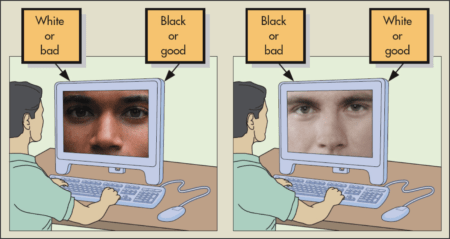Anyone following the replication crisis (and other debates) in the social sciences knows about one key problem with the implicit association test. In short, it’s not clear whether the test predicts anything. That is to say, ‘implicit bias,’ as measured by the IAT, might not predict prejudice or discriminatory behavior.
That’s a problem for the IAT for the obvious reason that its creators intend it as a major tool in the fight against racism, sexism, and other forms of oppression.
But I want to suggest that the IAT has even deeper problems. At least two of them. Even if the IAT does predict behavior, it still doesn’t explain a lot about why racism and sexism and happen. Nor does it tells us how to fight them.
Two Deeper Problems for the Implicit Association Test
What kind of deep problems does the implicit association have? I see two.
First, even if implicit biases predict behavior, those biases have a cause. And it’s quite likely that those are social and structural causes. That is to say, we get our biases from the social world around us. And so, even if we can counter the biases the IAT tells us we have, the causes will remain. As soon as we stop working on our biases, they just pop back.
In that sense, corporate DEI workshops that target implicit bias are probably just playing a game of whack-a-mole.
Second, there’s an even deeper problem. Even if individual biases have mostly social causes, and even if we can stamp much of this out, oppression almost certain happens at the level of social and institutional structures, more so than the people who play certain social roles.
For example, the same corporate DEI workshops typically explain racism as ‘prejudice plus power.’ But the formula is simply wrong. Prejudice, in the sense of a biased belief from an individual person, simply isn’t required for racism or sexism. These things are just power, where actual people holding prejudices might or might not be there.
So what’s the upshot? Yes, there’s a replication crisis in the sciences, especially in social psychology. And yes, it casts doubt on results from these sciences.
But even if the implicit association test predicts the things its proponents say it does, it still doesn’t explain the problems people designed it to explain. Nor will it solve those problems. The IAT might help us be nicer to each other, and that’s (mostly) a good thing. But it’s not going to end racism or sexism. Or even get us that much closer to ending those things.
